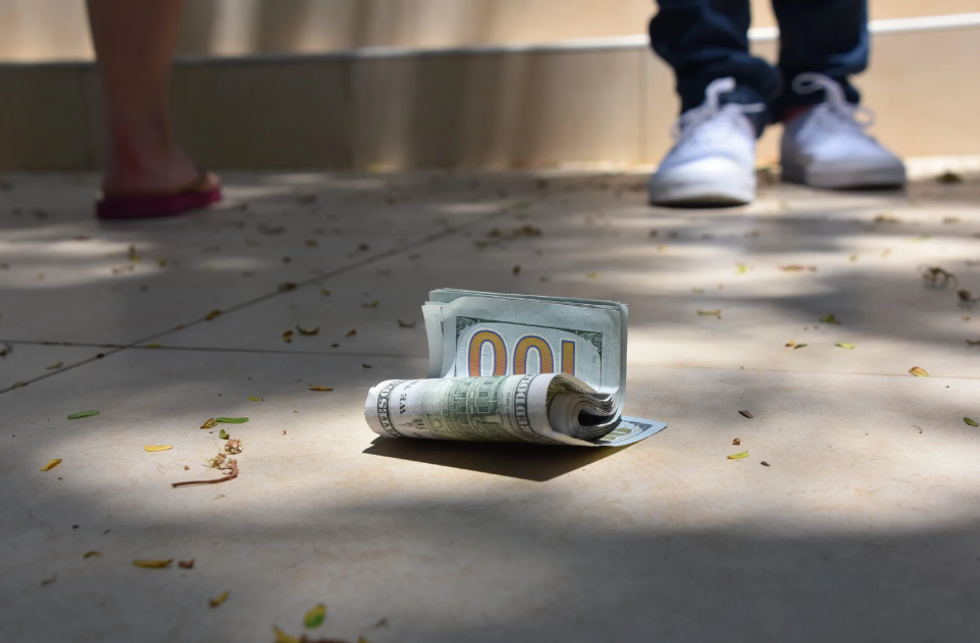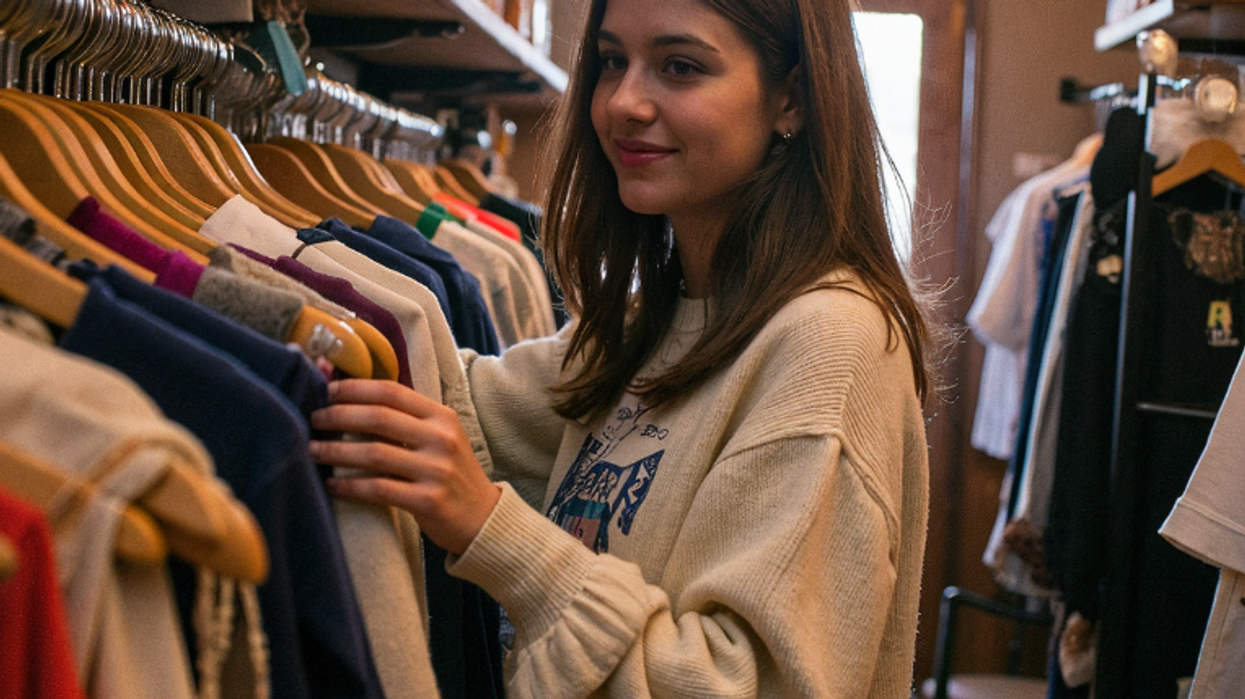Whether it was luck or pure chance, sometimes the most unexpected things happen. Lynora (@marthainfused) shared a surprising experience from a recent shopping trip, as reported by The Independent. While thrifting at Goodwill, she stumbled upon a Coach bag in decent condition—and for a steal of a price.
“Got this coach bag at Goodwill. I paid $6.99 for it,” the woman mentioned, adding, “Wait till you find out what’s inside.”
Lynora went on to show the coach bag and revealed that it was in a mediocre state. It seemed to be a usable bag which was slightly dirty but one could make do with it. However, there was a bonus surprise inside the bag. The woman revealed the bottom of the inside of the bag and pulled out an envelope from under the base cover.

“I thought I’d clean it up. I started by removing the flap underneath the purse and I found this envelope,” she explained. The woman found $300 inside the envelope and a handwritten note on the cover. She read the note which was from a woman named Martha.
“I have three children, they will give my things to Goodwill when I die. So, I am putting their inheritance inside all my favorite things,” the note read. Martha went on to explain why the bag was dear to her. She revealed that she acquired the bag after her husband’s mistress left it at her home in a hurry.
“I came home early from a visit to my parents in Connecticut and she must have left her bag and shoes,” she wrote.
@marthainfused Check your mother’s purses before you donate them to goodwill! #justsaying #omgchallenge #foundmoney #goodwillfinds #goodwill #donate #justkiddingrelax
The note concluded by saying, “I carried this bag every day. I wonder if my husband knew it was his girlfriend’s. I carried it daily and am giving it away because my kids don’t want it.”
She also encouraged the purchaser of the bag to use the money inside the envelope to purchase a new bag.

Several people were impressed by Martha’s witty response to her mistress and her wonderful reaction to the situation. @oli.and.deanne wrote, “Best story ever! Wish I could have known Martha.” @bcpbby added, “Is this for real!? Martha, I know you must be smiling down from heaven for real!”


Lynora was moved by the baffling yet heartwarming action of the woman and the money she received. She shared a follow-up video explaining that she wished to pay it forward by following Martha’s footsteps.
She said, “Just got back from donating a bunch of stuff at Goodwill. And you know what, I put $100 in the pocket of a pair of jeans. In a world full of Karens, be a Martha.”
@marthainfused #BeAMartha #findmartha #martha #infusedreleaf #notyourtypicaltopical #lesbiansoftiktok #Shine #4u #foryoupage
This article originally appeared last year.

















 Volunteer work.Photo credit
Volunteer work.Photo credit  Putting the puzzle together.Photo credit
Putting the puzzle together.Photo credit  Woman and her equations.Photo credit
Woman and her equations.Photo credit  A colorful mind.Photo credit
A colorful mind.Photo credit  A happy business team.Photo credit
A happy business team.Photo credit 

 A happy entrepreneur at workCanva
A happy entrepreneur at workCanva
 A car with LED headlightsCanva
A car with LED headlightsCanva

 A confident woman gives a speech in front of a large crowdCanva
A confident woman gives a speech in front of a large crowdCanva

 Creativity and innovation are both likely to become increasingly important for young people entering the workplace, especially as AI continues to grow.
Creativity and innovation are both likely to become increasingly important for young people entering the workplace, especially as AI continues to grow.